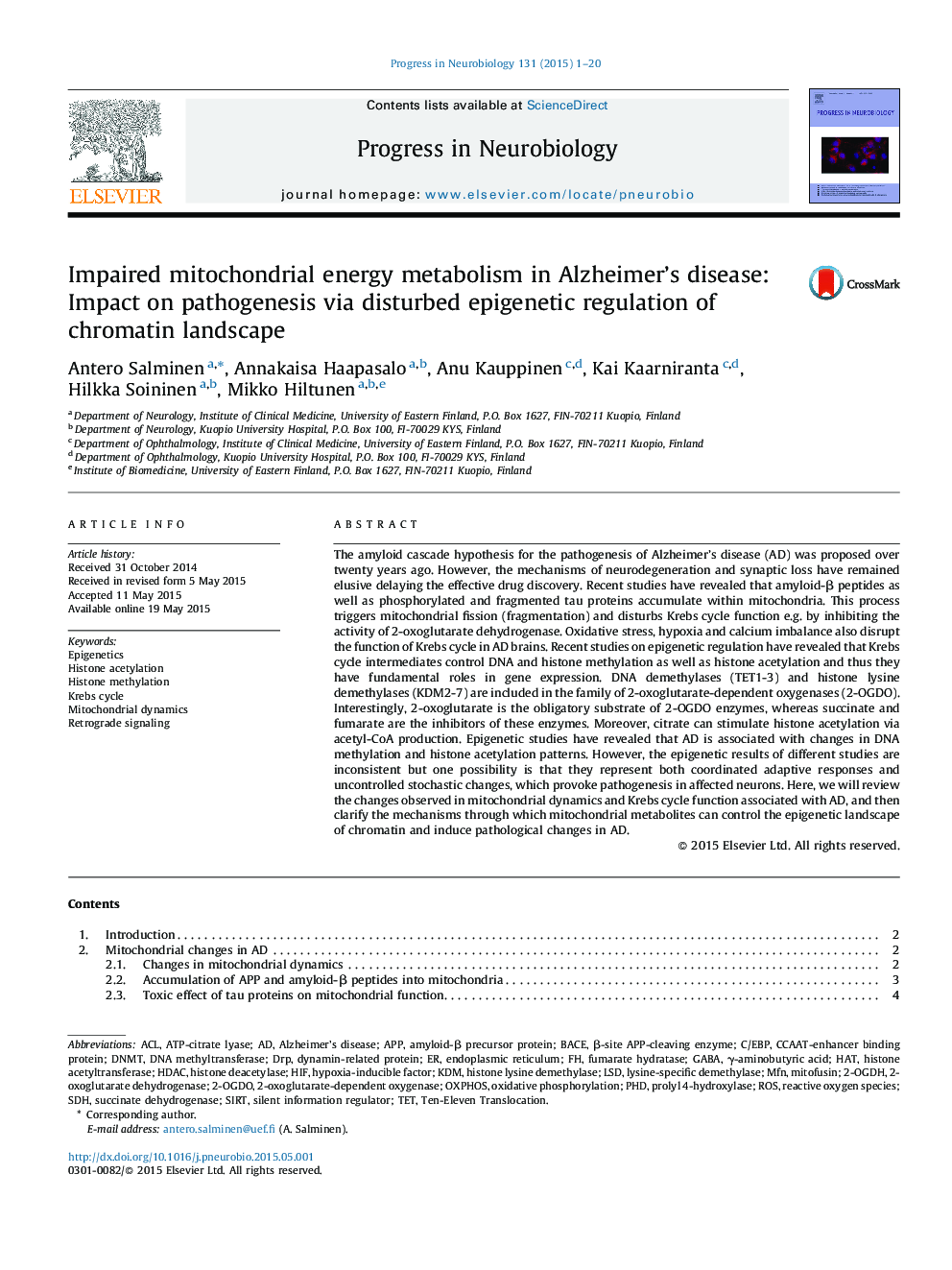| Article ID | Journal | Published Year | Pages | File Type |
|---|---|---|---|---|
| 4353264 | Progress in Neurobiology | 2015 | 20 Pages |
•Mitochondrial energy metabolism is disturbed in Alzheimer's disease (AD).•Amyloid-β peptides and phosphorylated tau proteins accumulate into mitochondria.•Krebs cycle metabolites control the epigenetic landscape of chromatin.•Epigenetic changes are associated with the pathogenesis of AD.•It seems that Krebs cycle intermediates control the progress of AD pathogenesis.
The amyloid cascade hypothesis for the pathogenesis of Alzheimer's disease (AD) was proposed over twenty years ago. However, the mechanisms of neurodegeneration and synaptic loss have remained elusive delaying the effective drug discovery. Recent studies have revealed that amyloid-β peptides as well as phosphorylated and fragmented tau proteins accumulate within mitochondria. This process triggers mitochondrial fission (fragmentation) and disturbs Krebs cycle function e.g. by inhibiting the activity of 2-oxoglutarate dehydrogenase. Oxidative stress, hypoxia and calcium imbalance also disrupt the function of Krebs cycle in AD brains. Recent studies on epigenetic regulation have revealed that Krebs cycle intermediates control DNA and histone methylation as well as histone acetylation and thus they have fundamental roles in gene expression. DNA demethylases (TET1-3) and histone lysine demethylases (KDM2-7) are included in the family of 2-oxoglutarate-dependent oxygenases (2-OGDO). Interestingly, 2-oxoglutarate is the obligatory substrate of 2-OGDO enzymes, whereas succinate and fumarate are the inhibitors of these enzymes. Moreover, citrate can stimulate histone acetylation via acetyl-CoA production. Epigenetic studies have revealed that AD is associated with changes in DNA methylation and histone acetylation patterns. However, the epigenetic results of different studies are inconsistent but one possibility is that they represent both coordinated adaptive responses and uncontrolled stochastic changes, which provoke pathogenesis in affected neurons. Here, we will review the changes observed in mitochondrial dynamics and Krebs cycle function associated with AD, and then clarify the mechanisms through which mitochondrial metabolites can control the epigenetic landscape of chromatin and induce pathological changes in AD.
